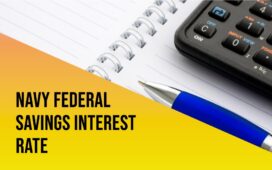Did you know that first-time home buyers made up 33% of all homebuyers in 2020? Buying your first home is an intimidating process. Between finding the right home, working with a real estate agent, and securing a mortgage, you may feel overwhelmed.
If you are a first-time buyer, one of the most important steps is taking out a mortgage. Do you know what mortgages are and how they work? Keep reading for a complete guide to mortgages so that you are ready to buy your first home.
What Is a Mortgage?
A mortgage is a type of loan that homebuyers can use to buy a house. Unless you have enough money to buy a house in cash, you will need to take out a home loan to buy your first house.
Most of the time, mortgages are granted by banks, credit unions, or other financial institutions, such as https://www.farmersbankidaho.com/personal/home/mortgage-loans.
You can choose to get a mortgage that lasts a few years or one that lasts up to 40 years. Mortgages come with different interest rates and down payment requirements. What you qualify for will depend on your credit score, credit history, and current debt.
How Do Mortgages Work?
If you want to buy a house, you first need to understand how mortgages work. Once you have gotten a mortgage, it will be your responsibility to pay for it each month. If you don’t, the bank can take your house.
Your monthly payment depends on the total amount you finance, how long you fiance it for, and your interest rate. You can choose to get a mortgage on your own, or you can split the responsibility with another person.
Once you have completely paid off the mortgage, you will own the house. At that point, you won’t have any monthly mortgage payments.
Different Types of Mortgages
Now that you know what mortgages are and how they work, what are some of the most common types of mortgages? Mortgages come in several different types.
What is best for you may not be best for everyone else. To decide which type of mortgage to get when buying a house, you have to weigh the pros and cons, determine what you qualify for, and what will be cheapest for you in the long run.
Here are some of the most common types of mortgages:
Fixed-Rate Mortgage
One of the most common types of mortgages is a fixed-rate mortgage. These loans come with an interest rate that doesn’t change over the lifetime of the loan. You can get a fixed-rate mortgage for 15, 20, or 30 years.
One of the best things about this type of loan is that your payments never change. That makes it easier to budget. The downsides are that you may pay more for interest than some other types of loans.
Conventional Mortgage
A conventional mortgage is a type of loan that is not backed by the federal government. There are two different types of conventional loans: conforming and non-conforming.
Conforming loans stick to the standards set by the Federal Housing Agency. Non-conforming loans don’t meet those guidelines. If you get a conventional loan, you may need to get private mortgage insurance.
These mortgages are useful if you need to borrow more money than the standard amount or want a lower borrowing cost.
The cons are that conventional loans require a higher credit score than government-backed loans, and you will need to pay for private mortgage insurance.
Government-Insured Mortgages
Government-insured mortgages are loans that are backed by the government. Unlike conventional mortgages, you will not need private mortgage insurance for this type of loan.
Some of the most common types of government-insured mortgages include FHA loans, USDA loans, and VA loans. These loans allow people with low credit scores, low income, and veterans/active military to get a house loan.
The benefits of getting a government-insured mortgage are that they are easier to get with bad credit, they don’t need a large down payment, and they are available to almost everyone.
The cons to choosing a government-insured loan over a conventional mortgage are that they often come with a higher interest rate, you need more documentation, and the mortgage insurance is expensive.
Adjustable-Rate Mortgage
Another common type of mortgage is adjustable-rate mortgages. The interest rates on these mortgages fluctuate as the market changes. Many adjustable-rate loans have a fixed interest rate for the first few years, and then they will fluctuate after that.
If you choose to get an adjustable-rate mortgage, try to find one that caps your monthly interest rate. If you don’t, you could end up with a mortgage that you can’t afford.
While a fluctuating interest rate may make some people nervous, it can allow you to save money on interest.
How to Apply for a Mortgage
Are you wondering how to get your first mortgage? If you want to take out a mortgage, you will have to apply. Mortgage lenders will want to know your credit score, credit history, income, age, down payment, and type of property.
All these different factors will determine your mortgage affordability. This is how lenders will decide how much money to offer you, loan terms, and interest rate.
Before you apply for a mortgage, you should work on saving money and find a property that you like.
If you are ready to apply for a mortgage, there are a couple of different ways you can do it. You can apply directly with a lender or use a mortgage broker to find the best mortgages for you.
Once your mortgage application is accepted, you can place an offer on the house. If the seller accepts, you will sign contracts and officially have a mortgage.
Was This Guide to Mortgages Helpful?
If you are a first-time homebuyer, the process of buying a house may seem intimidating. Mortgages are the loans that allow you to buy a house if you don’t have enough cash. When buying your first house, keep this mortgage advice in mind.
Did you enjoy reading this guide to mortgages? If you found this information helpful, check out the real estate category for more house-buying tips.













